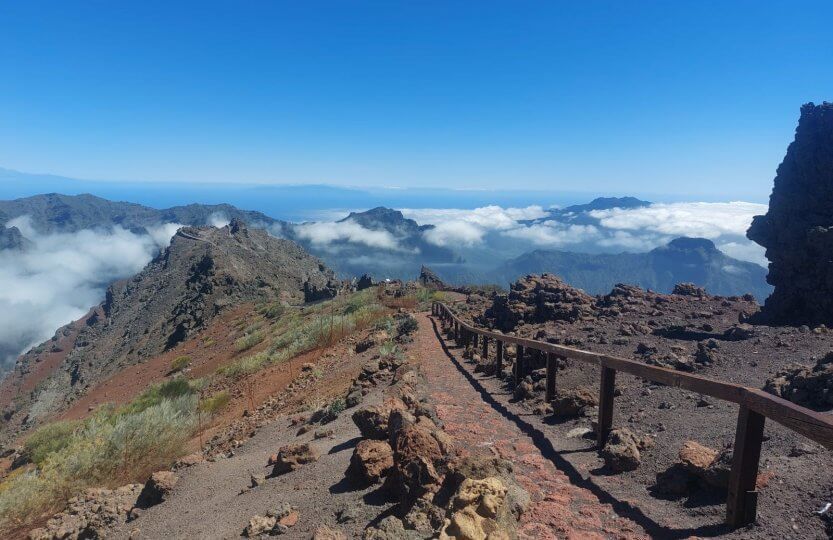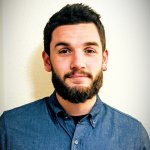OVERVIEW
The La Palma Science School has been led by Anke Jentsch and Carl Beierkuhnlein for the last several years and thus there are a variety of experiences and perspectives that are made of it. For starters, the two week excursion is largely predicated on giving students a hands-on experience into the field of ecology. Depending on your topic and your level of interest in pursuing ecology (in any form), it is a very rewarding experience. Anke and Carl often invite their PhDs or Postdocs along with external professors, so students really get the chance to see ecologists in action! This makes for an enriching research experience while motivating students to strive to carry out proven scientific methods and concepts. Make no mistake, it is an intensive science school – as evidenced by the 10 ECTS. Here, I will provide a general overview of what to expect in regard to workload, share my personal experience and offer some recommendations to get the most out of this great opportunity.
WORKLOAD
How Anke and Carl described the workload in the introductory sessions was fairly accurate to what we experienced, with slight variation between groups based on the topics (i.e. more/less field sampling, driving, etc). Immense preparation is required before departing: literature review, hypothesis, field plan, checking-out equipment. You discuss your project with your supervisors frequently before departing. Note that the more preparation beforehand, the better. This allows for a deliberate and efficient time on the island. However, some things only click once you’re on the island when the practicality of your field plan is realized.
Each group is issued a rental car to carry out their project. And just as they mention in the intro session, you have FULL independence on the island aside from a few meetings in the evenings. The scientists (Anke, Carl, others) will often meet you in the field to check-in on your progress and answer questions. Normally they each have their particular groups that they supervise so you will quickly find out who you should reach out to for help. If you don’t ask for help, they will assume your project is going well – this is a blessing and a curse.
Leaving La Palma does not conclude the science school. A full report written in the form of a (mock)publication is required. You must select and justify a specific scientific journal and follow their submission guidelines. Some groups had to submit twice if there was a lack of justification or if the report was incomplete in some way. Lastly, every group presents their findings in a seminar at the end of the summer. For us, the seminar didn’t have much discussion as we had already submitted our reports and presented preliminary findings several times on the island.
MY TOPIC
After selecting my top three choices, I was assigned to the topic of “Plant Functional Trait Variation – Community trait convergence versus divergence, i.e. across an altitudinal gradient”. This was one of my choices due to my work as a Hiwi leading up to the science school announcement, so I had a little bit of background on the topic. I underestimated, however, how controversial and philosophical the topic was/is. This made our literature search and formulation of a hypothesis a bit grueling as we often had to provide extensive justifications.
Our field campaign predominantly involved finding suitable plots, identifying plant species and measuring physical plant traits (leaf area, leaf thickness, plant height). We wanted to see if we could observe patterns of trait convergence/divergence in different ecosystems, so we got to drive all around the island. This was quite fun. Although, all the roads are windy and getting to some plots took nearly two hours (one way). Notice too, that our field campaign deviated slightly from the topic assigned to us – you have the freedom to modify your topic so long as it is still relevant to the original topic (and after discussion with supervisors).
Since our topic was so heavily debated, it wore on our group in discussions with the scientists. I struggled a lot with the fact that our topic was not straightforward. About halfway through our field campaign, we completely reconstructed our plan with the help of Richard Field, one of the external professors (I highly recommend consulting with him). He helped us see the topic more simply while building our original ideas. He made several recommendations that were critical to our findings in the end. I believe that if we had dedicated more time in the early stages of our project getting the professors involved, we would have had a much more focused field campaign from the onset of our excursion. In all, I learned so much from our decision-making over the 6 months that we were involved in the project as well as from the insight providing by instructors like Richard Field, Anke and the rest of the scientists.
RECOMMENDATIONS
Choose a topic you have genuine interest in.
This is elementary but it has been fundamental to my development as an ecologist since this science school. I realized that I selected the topic because I was working on the topic for my Hiwi task/job, not because I was genuinely interested in it. Although I made the most of the experience in the end, I could’ve gotten much more out of a topic that involved remote sensing, forests, or fire, which are my primary research interests.
Engage.
This is in-line with the first recommendation. Engage in your topic and you will get a lot out of this experience. For us, it allowed us to really grapple with our topic and shift it into a direction that for us was more interesting. In the end, it really felt like our research project and not one formulated by the scientists.
Adapt.
Prepare like crazy but be open to changes. We had planned to use a mobile app to measure leaf traits and we tested its accuracy before arriving. On the first day, however, we realized it was completely inefficient and impractical. We made the switch the next day. Be open and adapt to changes as needed and realize that this is part of the experience.
Ask for help.
We’re all students here and we must not forget that this is a learning experience. Asking for help is critical to enhancing our knowledge and can make life much easier. Plus, devoted ecologists like Anke, Carl and Richard Field love sharing their knowledge so why not make the most of it?
Have fun.
You’re flying to a very unique place in the world, make the most of it. There will be plenty of time to focus on your project so don’t forget to enjoy the scenery and take a hike or a day at the beach some time. Get to know your group mates before leaving for the island. You spend a lot of time in the car, in the field and at the accommodation with your group so be sure to communicate and involve a mix of work and play. This keeps up morale for the two weeks that you’re stuck with each other!
CONNECT
For any further information or specific questions regarding the La Palma Science School, don’t hesitate to reach out to me personally. I would love to help provide clarity to any uncertainty about attending the course because in the end, I would most certainly recommend participating!
Originally from the US, I have a BA from California State University - Monterey Bay (CSUMB) in Environmental Studies: Sustainable Communities with a minor in GIS. I seek to use remote sensing techniques to monitor vegetation dynamics and ecological interactions. Always willing to connect, I love going out with friends, playing team sports like beach volleyball and basketball, and spending time in nature.










